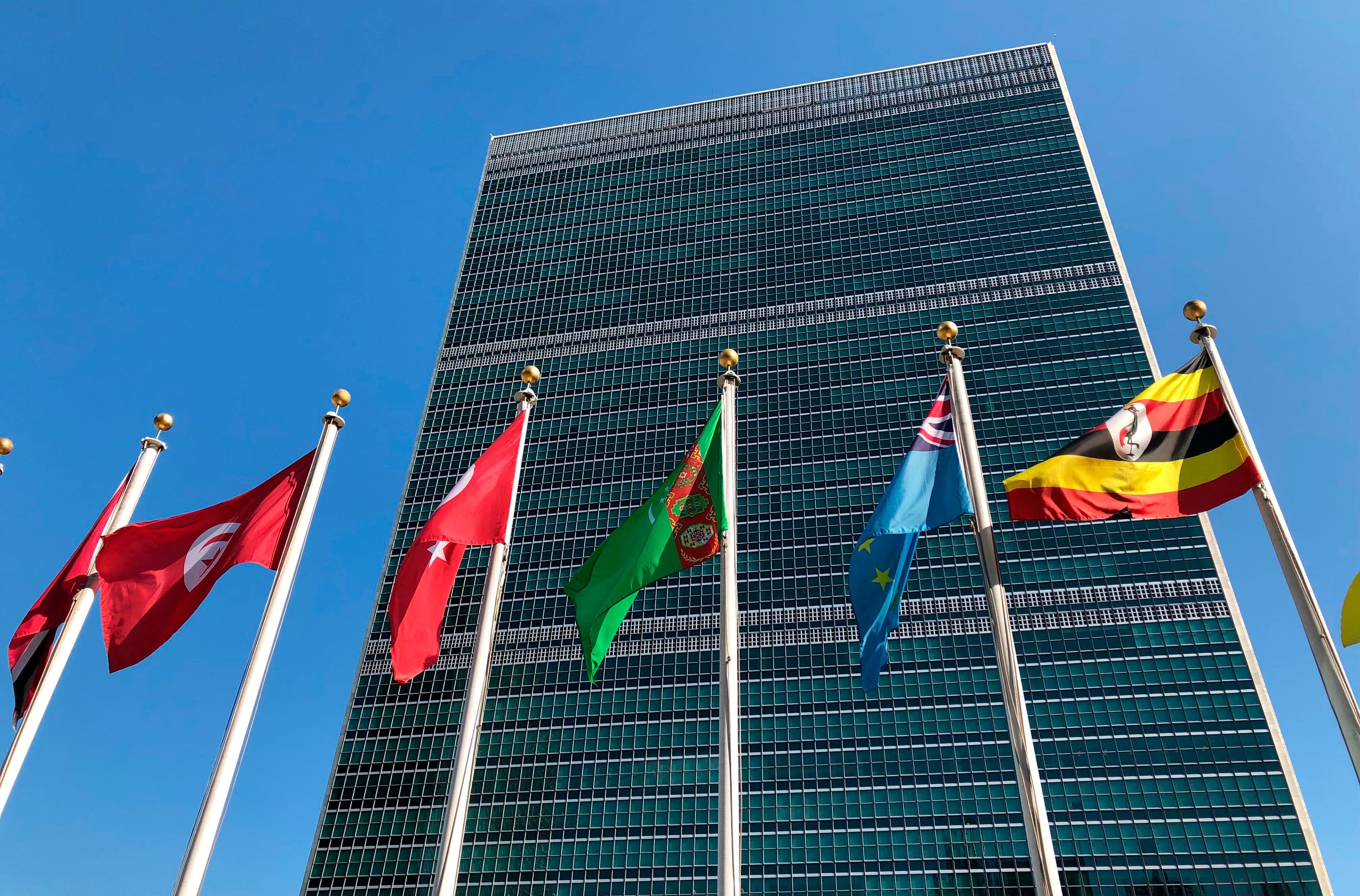UN expert: US progress on LGBT rights but equality lacking
The independent U.N. expert on sexual orientation and gender identity says enormous progress has been achieved in the last 50 years for lesbian, gay, bisexual and transgender people in the United States

Enormous progress has been achieved in the last 50 years for lesbian, gay, bisexual and transgender people in the United States but unfortunately “equality is not yet within reach and in many cases not within sight” for LGBT communities, the independent U.N. expert on sexual orientation and gender identity said Tuesday.
Victor Madrigal-Borloz told a U.N. press conference after a 10-day visit to the United States that he applauds President Joe Biden for “very powerful" executive actions during his first days in office seeking to eradicate discrimination and violence against the LGBT community. But he said he is “extremely concerned” about a concerted series of actions at the state and local level based “on prejudice and stigma, to attack and to rollback the rights of LGBT persons.”
Madrigal-Borloz said that in access to health, employment, education and housing, the LGBT community suffers.
Among young adults aged 18 to 25, for example, LGBT people have a 2.2 times greater risk of homelessness, 23% of LGBT adults of color have no health coverage, and in a recent study 43% of lesbian, gay and bisexual participants reported having suffered at least one act of discrimination or harassment, he said.
Madrigal-Borloz, a Costa Rican lawyer and human rights advocate, also expressed serious concern at the disproportionate impact of violence against the LGBT community.
He cited the National Crime Victimization Survey that found that 20.3% of hate crimes were related to sexual orientation or gender identity bias, significantly disproportionate to the LGBT population in the U.S., which he said is usually estimated at between 5% and 8%. He also cited a Centers for Disease Control and Prevention study that found that bisexual women encountered intimate partner violence at higher rates than other populations, with 46% reporting having been raped and 74.9% reporting being victims of sexual violence other than rape, which he called “extremely worrying."
Madrigal-Borloz, who was appointed by the Geneva-based U.N. Human Rights Council, wrapped up visits to Washington, Birmingham, Alabama, Miami and San Diego at the invitation of the U.S. government. He said he met with over 70 federal, state and local representatives, more than 100 civil society representatives, and people with “lived experience” in the LGBT community.
He stressed that his comments Tuesday reflected his preliminary observations, and his final report with recommendations will be presented to the Human Rights Council in June 2023.
“The conclusion of my visit in this preliminary moment is that there are significant efforts being deployed by the current administration to dismantle systems of social exclusion,” Madrigal-Borloz said. But there is also “a significant risk that LGBT persons will be caught in what I have described as a riptide created by all of these actions at local level.”
He said NGOs and human rights defenders have found at least 280 current legislative attempts at the local level that would lead to a regression of LGBT rights, “and which also create a terribly polarizing narrative that exacerbates already high and worrisome risks of violence and discrimination.”
As examples, Madrigal-Borloz cited legislation in Alabama making it a felony to provide gender-affirming medical treatment to transgender youth and legislation in Florida nicknamed “don’t say gay” by opponents that bans teachers from talking about sexual orientation or gender identity through the third grade. He also cited limits on comprehensive sexual and gender education, and on participation in sports for transgender people.
He stressed that typically there is no evidence “that any of these measures need to be considered reasonably under a democratic society."
Madrigal-Borloz, who is also a researcher at Harvard Law School's Human Rights Program, said the U.S. Supreme Court decision overturning Roe vs. Wade and a woman’s right to abortion is also “a devastating action” for lesbian, bisexual and transgender women. That's “because it is members of these communities that actually suffer also disproportionately from unwanted teen pregnancies,” he said.
“They also require statistically more abortions," he said, “and LGBT persons in general actually benefit enormously from the services concerning sexual and reproductive health provided by abortion providers in different states, and the closure of these centers will affect disproportionately these persons."
Madrigal-Borloz said suggestions that following the Roe vs. Wade ruling, other precedents could be overturned could have a huge impact on the LGBT community, especially if gay marriage was outlawed and homosexuality became a criminal act, as it currently is in more than 65 countries.
He also pointed to early statistics showing that 98% of monkeypox cases are in men who have sex with men, which he said “concerns me greatly because it creates a risk of furthering, and retrenchment of, stigma and discrimination against this population.”
Bookmark popover
Removed from bookmarks